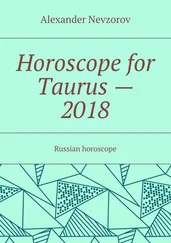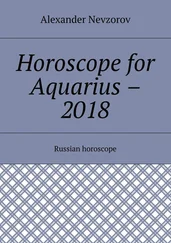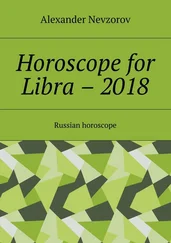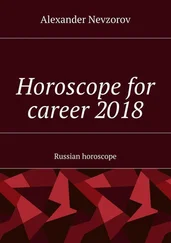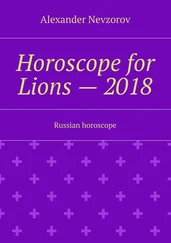It is difficult for anyone, including myself, to look back dispassionately and objectively at those times and to try to analyse the feelings one had and the motives for one's actions. It was not really political sense or political education which shaped my decisions, leading me from the industrial Midlands to Switzerland, to post-war Russia, and ultimately back to England again. From a restless sales manager to a Russian spy is a difficult game of consequences and I can only hope that these pages will explain why and how, and the subsequent metamorphosis from a spy into a gentleman of leisure with much time to reflect and little to do.
However, it was almost inevitable that my early discontent and restlessness and desire for something new, preferably exciting, would lead me toward the Communist Party. While still in business I had attended Communist Party discussion groups and gradually was led to believe that international Communism was the panacea for all the world's ills. Others have travelled the same road - as the Royal Commission's report on the Canadian spy case shows - but at the time I had no idea as to where the road would end, and indeed, in all fairness to my fellow members, neither had they.
The outbreak of the Spanish Civil War crystallised my somewhat inchoate thoughts on the whole matter. Until that time I had been convinced that something was wrong but had found precise analysis difficult. The Civil
War in Spain seemed to show everything up in neat black and white, and I was convinced that the Rebels were inspired and supported by the German-Italian Fascists with the idea of their gaining control first of the peninsula and ultimately of Europe and the entire world, with the resultant suppression of freedom and democratic thought. Ranged against these enemies of democracy were the Spanish Republican government, almost alone, with the Western democracies standing by, busily tying their own hands in the red tape of non-intervention. Rallying to their aid were only the freedom-loving individuals of the world and the Soviet Union. It all seemed as simple as that. I did not realise then that the Soviet Union, just as much as Germany and Italy, was using Spain as the European Salisbury Plain for trying out their own war machines, or that the freedom-loving individuals were to sacrifice their lives in thousands for some propagandist's whim or to gain a political battle desired by the politicos in Barcelona or some commissar from the Kremlin.
In those days Spanish affairs divided themselves into right and wrong for me - as indeed I think they did for everyone. It was the bounden duty of anyone who valued democracy to do his best to support the existing government in Spain by whatever means he could. I had no other means than my two hands, and I was prepared to use them for the purpose. Many others felt the same way and travelled by the same road. Many did not return; they died in the dusty trenches round Madrid and Fuentes de Ebro.
Not till many years later was I told in Moscow that it had not been in the interests of the Soviet Union for the Republicans to win the Civil War. The Soviet policy was to provide only such a dribble of arms and ammunition as would keep the Republican forces in the field while allowing the Germans and Italians to install themselves firmly in the peninsula. The Russian idea was that any power which had a predominant influence in Spain was automatically the enemy of Great Britain, and the Russians desired to prevent any possible alliance between Britain and the Rome-Berlin Axis; which alliance the crystal-gazers in the Kremlin had deemed possible and which they regarded as fatal to Russian interests. This was Realpolitik with a vengeance but after years of working for the Russians I was not surprised when it was told to me. I think that had I been told this when in Spain I would have rejected it as so many Fascist lies. My comrades fell believing that they were fighting for freedom. In some ways their lot was enviable.
This preamble may seem dull, but so many books have been written about what a spy does and so few as to how he came to do it: and fewer still as to why he ever decided to become a spy. Both the operations of a spy and the method of his recruitment are matters which can be laid down in textbooks, whether English, German, or Russian. They are merely technical methods. The reasons for becoming a spy may range from greed through fear to patriotism or idealism, depending on whether the individual believes in a country or a cause. The average German spy who came to this country during the war was impelled by either greed or fear – fear of reprisals on his family – or both. The mercenary in any profession is not an attractive character – not even in espionage – and my German opposite numbers in the last war do not seem to have been actuated by any but the most mercenary of motives in most cases. I think I can say, speaking for myself and my colleagues, that the mercenary motive was subsidiary. Patriotism was obviously not applicable when one had English, German, Hungarian, and Swiss subjects all working for the same cause. Nor can it be said that in every case idealism was the primary cause. It was certainly not so in my case, since it was some time before I realised for whom I was working. Many conversations that I have had since with others who were "in the net" have shown that they, too, at first had little if any idea of the identity of their masters- save that their work was for the Communist ideal as a whole, which is, after all, the vaguest sort of master to have.
In my case I was recruited out of the dark into the dark- a sort of blind catch-as-catch-can- and went into the arena of international espionage with my eyes open, but under a black bandage. I knew that I was a spy and against whom I was supposed to be spying, but at first had no idea of the why and wherefore or of the directing hand. I wonder how many of my colleagues on the other side of the fence, who died in the early morning at Wandsworth Gaol, were in a similar position and died wondering.
It all really began in Spain. On a cold wet night in December 1936, I embarked for France. Most of my fellow volunteers were Party members, and most of them are dead. I myself, though not a Party member, had been vouched for by two responsible members of the Party, and as such departed to fight for my clear-cut ideals; to fight to prevent Fascism from overrunning Europe.
The journey into Spain was uneventful. We made our rendezvous in Paris and were incorporated in a larger body of volunteers already collected there, and then sent on into Catalonia with responsible Party members as bear leaders. In Albacete, which was the headquarters of the International Brigade, we were all sorted out and I was posted to the nearby village of Madriguerras, where a British battalion was being formed.
Too many books have been written about the Spanish Civil War for me to say more than is necessary to my story. Too many of my comrades have died to make it easy for me to write about it at all. It was for me merely a halting place on my way. The fact that I did not realise that it was only a halting place and regarded it as the be-all and end-all of my existence at the time is neither here nor there. For me the war was a struggle where my friends fought and died. For others it was merely a testing ground and a suitable place for talent spotting.
The man in charge of the formation of the battalion was Wilfred Macartney. The political commissar was Douglas Springhall, who played a more vital part in my life later, when he recruited me for the Red Army Intelligence. Battalions were formed approximately on language groups and in our battalion we had British and dominion troops and a sprinkling of Swedes whose only other language was English. We even had an Ethiopian who claimed that he was the son of Ras Imru, one of the Negus' chieftains. After the preliminary flurry, however, it was discovered that he was merely a Lascar sailor who had picked up his English on British ships, and he then faded out of the propaganda limelight. Despite the occasional bad egg that is as inevitably attracted toward a cause where there is a possibility of loot as a fly is to honey, the morale of the battalion was high. Whatever were the motives of the Republican equivalents of brass hats, the rank and file fought magnificently. The casualty lists are sufficient evidence of this; almost half of the thousand-odd British who served with the International Brigade were killed.
Читать дальше




